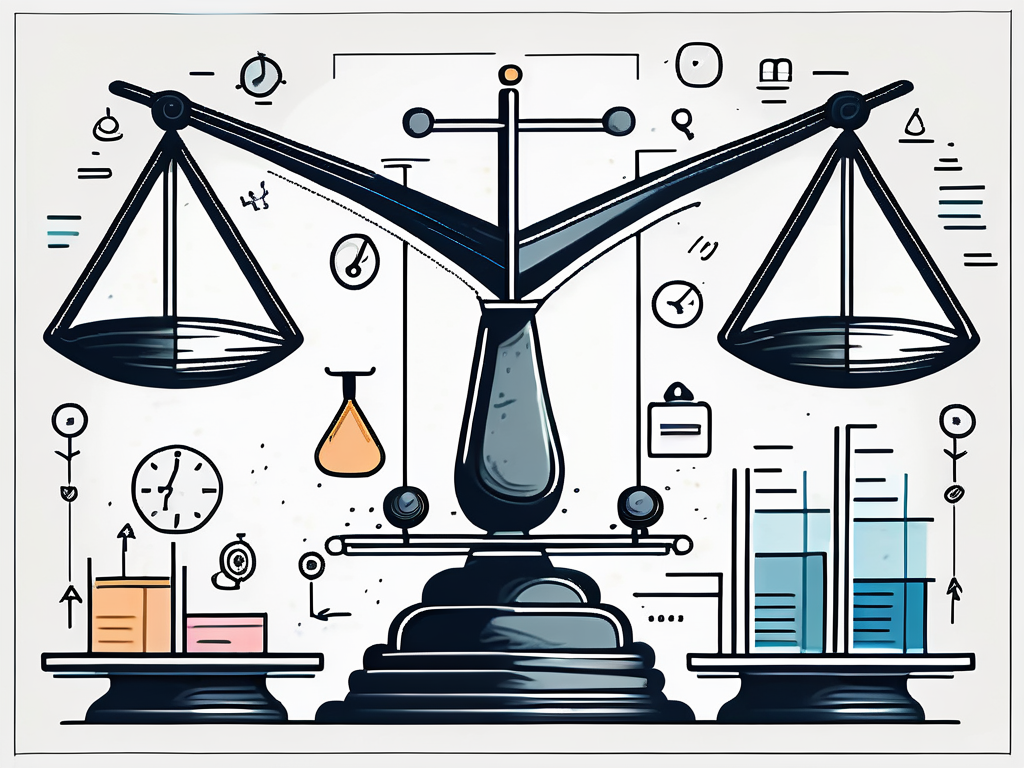Send Us Your CV
Send us a copy of your CV and we'll see if you match any open opportunities we have.
ContentsUnderstanding the Importance of Professional Traits in the Legal FieldWhy Traits Mat...

In the legal field, professional traits play a crucial role in determining the success of legal professionals. It's not just about their knowledge or experience; the right set of qualities can make a significant difference in their ability to navigate complex legal matters and deliver favorable outcomes for their clients. So, what are these traits, and why do they matter in the legal profession?
When it comes to legal matters, it's not enough to rely solely on technical expertise. Legal professionals must possess a unique combination of skills and qualities that enable them to excel in their field. These traits not only help them navigate the intricacies of the law but also enable them to build strong relationships with clients, colleagues, and stakeholders. Let's explore why these traits matter so much in the legal profession.

In legal professionals, traits play a vital role as they directly impact their performance and ability to achieve favorable outcomes. For instance, effective communication skills are essential for conveying complex legal concepts to clients and presenting arguments persuasively in court.
Moreover, traits like resilience and perseverance are crucial for withstanding the pressure and challenges that come with legal practice. Legal professionals often face intense workloads, tight deadlines, and demanding clients. A high level of resilience helps them stay focused, maintain composure, and continue striving for success.
Another important trait for legal professionals is attention to detail. The legal field is known for its meticulous nature, where even the smallest oversight can have significant consequences. Professionals who possess a keen eye for detail can spot potential issues, identify gaps in arguments, and ensure that all necessary documents and evidence are in order.
Professional traits not only contribute to a legal professional's overall success but also affect their reputation and client satisfaction. Clients seek legal professionals who exhibit integrity, a passion for justice, and a dedication to achieving the best possible outcome.
Additionally, traits such as analytical skills, research skills, and creativity are instrumental in problem-solving, strategic planning, and finding innovative solutions. Legal professionals who possess these traits can uncover hidden avenues, think critically, and develop creative strategies to resolve complex legal issues.
Furthermore, adaptability is a trait that is highly valued in the legal field. The law is constantly evolving, and legal professionals must be able to adapt to new regulations, changes in case law, and emerging trends. Being adaptable allows them to stay ahead of the curve, anticipate potential challenges, and provide the best possible advice and representation to their clients.
In conclusion, professional traits are essential for legal professionals to thrive in their field. From effective communication and resilience to attention to detail and adaptability, these traits shape their performance, reputation, and ability to achieve successful outcomes. By embodying these traits, legal professionals can navigate the complexities of the law, build strong relationships, and provide exceptional service to their clients.
In the legal field, analytical skills are paramount. Legal professionals must possess a keen ability to analyze complex information, identify patterns, and make logical connections. These skills enable them to assess legal situations, develop strategies, and anticipate potential outcomes.
Good communication skills are key in the legal profession. Legal professionals must effectively convey their arguments, negotiate with other parties, and build rapport with clients. Strong verbal and written communication skills are vital for presenting compelling cases and facilitating successful negotiations.
Research skills are invaluable for legal professionals. They must dive deep into legal precedents, statutes, and regulations to gather evidence, understand complex legal issues, and build strong cases. Thorough research ensures that legal professionals are well-prepared to argue their cases confidently.
Developing and maintaining positive relationships is crucial for legal professionals. Effective people skills enable them to build trust with clients, collaborate with colleagues, and negotiate with opposing parties. These skills are instrumental in fostering strong professional networks and achieving favorable outcomes.
Resilience and perseverance are critical traits in the legal profession. Legal professionals often encounter setbacks, face challenging opponents, and work long hours. The ability to bounce back from failures, remain focused, and persist in the pursuit of justice is what sets exceptional legal professionals apart.
Creativity is not just reserved for artists and inventors; it is also highly valued in the legal field. Legal professionals who can think outside the box often find unique solutions to complex legal problems. Their ability to approach legal issues from different perspectives can yield favorable outcomes for their clients.
Attention to detail is paramount in the legal profession. Legal professionals must meticulously review contracts, documents, and legal filings to ensure accuracy and spot any potential issues. Being detail-oriented helps legal professionals avoid costly mistakes and provide thorough, well-prepared representation to their clients.
Integrity is a non-negotiable trait for legal professionals. Clients rely on them to act ethically, maintain confidentiality, and prioritize their best interests above all. Legal professionals with unwavering integrity build trust with their clients, peers, and the judiciary system.
Negotiation skills are vital in resolving legal disputes, striking favorable deals, and finding mutually beneficial outcomes. Legal professionals with excellent negotiation skills can effectively advocate for their clients' interests while seeking common ground with opposing parties.
A passion for justice is what motivates many legal professionals. It is this intrinsic drive that fuels their dedication to advocating for their clients' rights and seeking fair outcomes. Legal professionals who genuinely believe in the importance of justice work tirelessly to make a positive impact on society.
One way to assess analytical skills in legal professionals is by observing how effectively they analyze complex cases and present logical arguments. Look for their ability to identify relevant issues, spot patterns, and draw logical conclusions.
Pay attention to how legal professionals communicate with clients, colleagues, and opposing parties. Strong communication skills manifest in clear and persuasive oral and written communication, active listening, and the ability to adapt communication styles to different audiences.
Assessing research skills can be done by reviewing legal professionals' written work, such as legal briefs or memos. Look for their ability to gather accurate and relevant information, identify authoritative sources, and present well-reasoned arguments based on thorough research.
Observe how legal professionals interact with clients, colleagues, and opposing counsel. Look for their abilities to build rapport, establish trust, and effectively negotiate. Strong people skills are evident in their ability to maintain professional relationships while advocating for their clients' best interests.
Resilience and perseverance are best observed through hard work and the ability to remain focused under pressure. Look for legal professionals who consistently deliver quality work, efficiently manage their caseload, and maintain a positive attitude even in challenging situations.
Assessing creativity in legal professionals can be done by reviewing their track record of innovative solutions, unique legal strategies, and successful outcomes in complex cases. Look for their ability to think outside the box, challenge conventional wisdom, and apply creative problem-solving techniques.
Attention to detail can be evaluated through the accuracy and completeness of legal documents, contracts, and filings prepared by legal professionals. Look for their ability to spot errors, inconsistencies, and potential pitfalls that others might miss.
Integrity can be assessed by observing legal professionals' ethical conduct, confidentiality practices, and adherence to professional standards. Look for consistency in their actions, transparency in their interactions, and a commitment to acting in their clients' best interests.
Assess negotiation skills by observing legal professionals' ability to effectively negotiate with opposing counsel, find common ground, and achieve favorable outcomes. Look for their ability to remain composed under pressure, listen actively, and secure advantageous terms for their clients.
Assessing a legal professional's passion for justice can be done by engaging in meaningful conversations about their motivations, beliefs, and how they approach their work. Look for signs of genuine dedication, deep conviction, and a commitment to making a positive impact on their clients' lives.
These traits are just some of the key qualities that make a legal professional exceptional. When seeking legal representation or evaluating potential colleagues, look beyond technical skills and qualifications. Consider the importance of these traits and how they can contribute to the success and effectiveness of legal professionals. With the right combination of these traits, legal professionals can excel in their field and make a significant impact on the lives of their clients and the justice system as a whole.
Whether you're a legal professional looking for their next career move, or you're looking for legal staffing to help grow your in-house or law firm legal team, get in touch and one of our expert consultants can discuss your next steps.